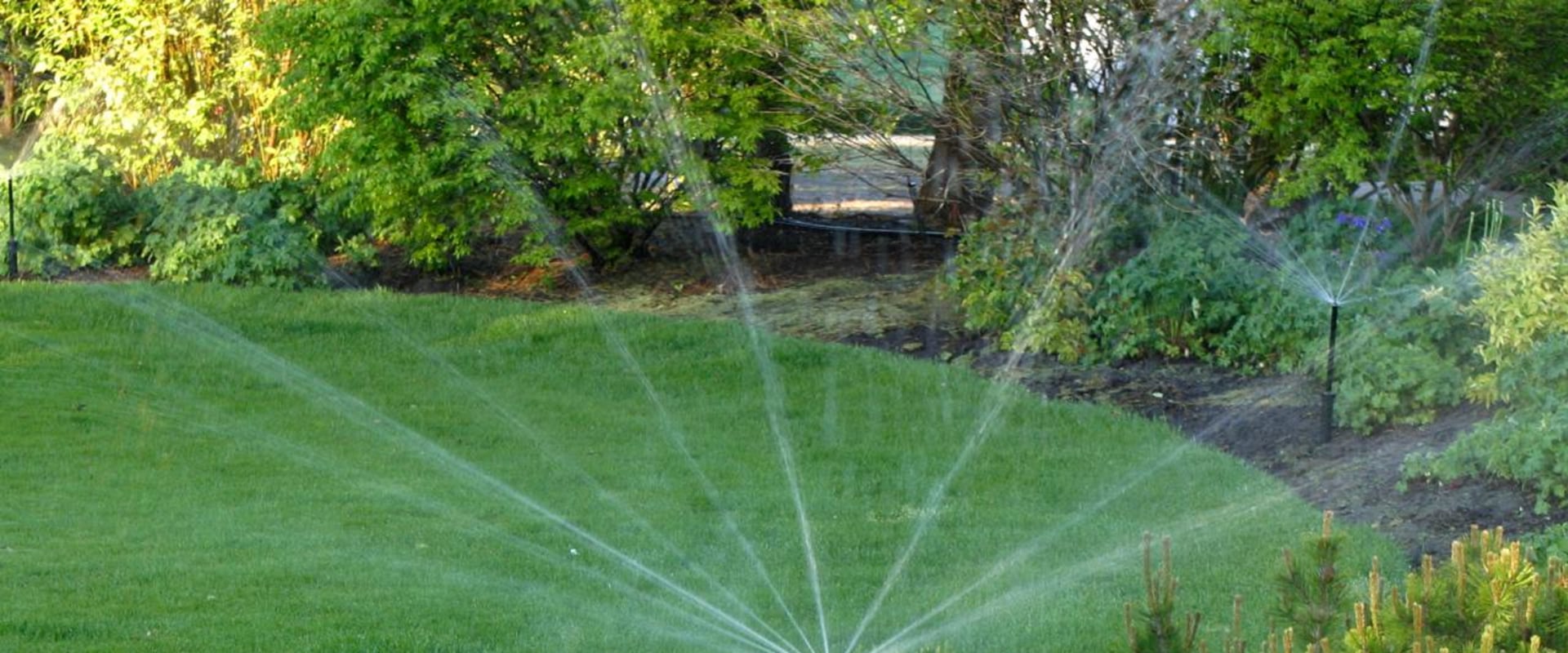Landscape sprinkler systems play a crucial role in maintaining healthy, vibrant outdoor spaces by providing consistent and efficient irrigation. These systems are essential for homeowners, businesses, and public spaces seeking to enhance the aesthetic appeal and functionality of their landscapes. The variety of sprinkler systems available caters to different needs, making it important to understand the features, benefits, and applications of each type. Whether you are managing a small garden or a sprawling lawn, selecting the right sprinkler system ensures optimal water usage and long-lasting results.
Fixed Spray Sprinklers
Fixed spray sprinklers are a popular choice for small to medium-sized landscapes that require precise and consistent watering. These systems use stationary nozzles that deliver a fan-shaped spray, covering a specific area uniformly. Their compact design makes them ideal for flower beds, shrubs, and ground cover, where targeted irrigation is necessary to avoid overwatering or runoff. Fixed spray sprinklers are easy to install and operate, making them a favorite for residential and commercial properties alike. However, their limited reach means they are best suited for spaces with minimal obstructions.
Rotary Sprinklers
Rotary sprinklers are designed for larger landscapes, offering extended coverage through rotating streams of water. These systems are more water-efficient than fixed sprays, as their slow application rate allows for better soil absorption and reduced runoff. Rotary sprinklers are ideal for expansive lawns, sports fields, and areas with uneven terrain. Modern rotary sprinklers come with adjustable heads, enabling users to customize the watering radius and arc to suit specific landscape needs. Their durability and versatility make them a reliable choice for both residential and commercial applications.
Drip Irrigation Systems
Drip irrigation systems are the most water-efficient option for landscapes, delivering water directly to the base of plants through a network of tubes and emitters. These systems minimize evaporation and runoff, ensuring that water reaches the root zones where it is most needed. Drip systems are highly versatile, catering to gardens, flower beds, and potted plants with precision. They are particularly beneficial in arid regions or areas with water restrictions, as they conserve water while promoting healthy plant growth. Installing and maintaining drip systems requires careful planning, but their long-term benefits far outweigh the initial effort.
Soaker Hoses
Soaker hoses provide an economical and straightforward solution for watering gardens and landscapes. These porous hoses release water gradually along their length, ensuring even distribution to the surrounding soil. Soaker hoses are ideal for linear planting areas, such as rows of vegetables or hedges. Their simplicity and affordability make them an attractive option for homeowners seeking an easy-to-use irrigation system. However, they are less suited for larger or irregularly shaped landscapes, as their coverage is limited by their length and layout.
Smart Irrigation Systems
Smart irrigation systems represent the future of landscape watering, incorporating advanced technology to maximize efficiency and convenience. These systems use sensors, weather data, and automation to adjust watering schedules based on real-time conditions, such as soil moisture, temperature, and rainfall. Smart sprinklers can be controlled remotely via smartphone apps, allowing users to monitor and manage irrigation from anywhere. Their precision and adaptability make them an excellent choice for eco-conscious homeowners and businesses looking to reduce water usage while maintaining lush landscapes.
Considerations for Choosing a Sprinkler System
Selecting the right sprinkler system depends on several factors, including the size and shape of the landscape, soil type, climate, and water availability. Landscapes with sandy soil may benefit from drip irrigation systems that minimize runoff, while clay-heavy soil might require slow-application systems like rotary sprinklers to prevent pooling. Climate considerations, such as arid conditions or frequent rainfall, also play a significant role in determining the most effective irrigation solution. Consulting with a professional ensures that the chosen system aligns with the landscape’s unique requirements and maximizes efficiency.
The Role of Professional Installation
While some sprinkler systems, such as soaker hoses, can be installed as DIY projects, more complex systems like drip irrigation or smart sprinklers often require professional expertise. Proper installation ensures optimal performance and longevity, reducing the risk of leaks, uneven coverage, or system malfunctions. Companies like Clark HIQU Roofing Pro, known for their commitment to quality and precision in roofing, exemplify the importance of hiring skilled professionals for specialized tasks. Their attention to detail and customer-focused approach ensure that systems are installed to meet the highest standards.
Conclusion: Finding the Perfect Sprinkler System
Understanding the different types of landscape sprinkler systems empowers homeowners and businesses to make informed decisions about their irrigation needs. Each system offers unique benefits and applications, from the precision of drip irrigation to the versatility of rotary sprinklers. By assessing factors such as landscape size, soil type, and water efficiency goals, property owners can select a system that enhances the health and beauty of their outdoor spaces. Partnering with a trusted professional ensures seamless installation and maintenance, enabling the chosen sprinkler system to deliver reliable performance for years to come.



